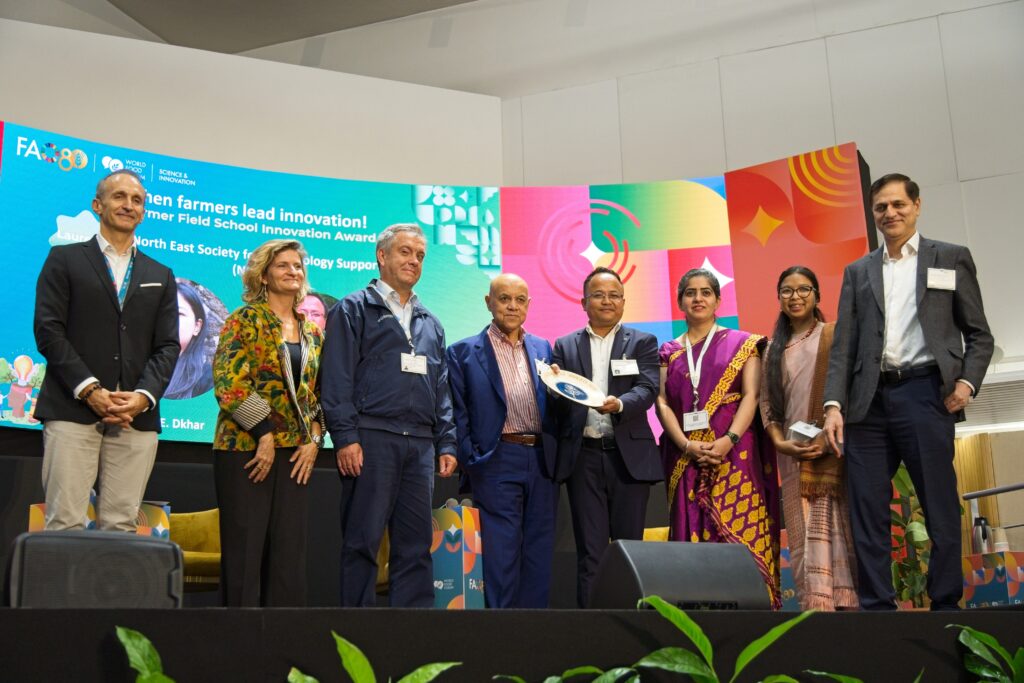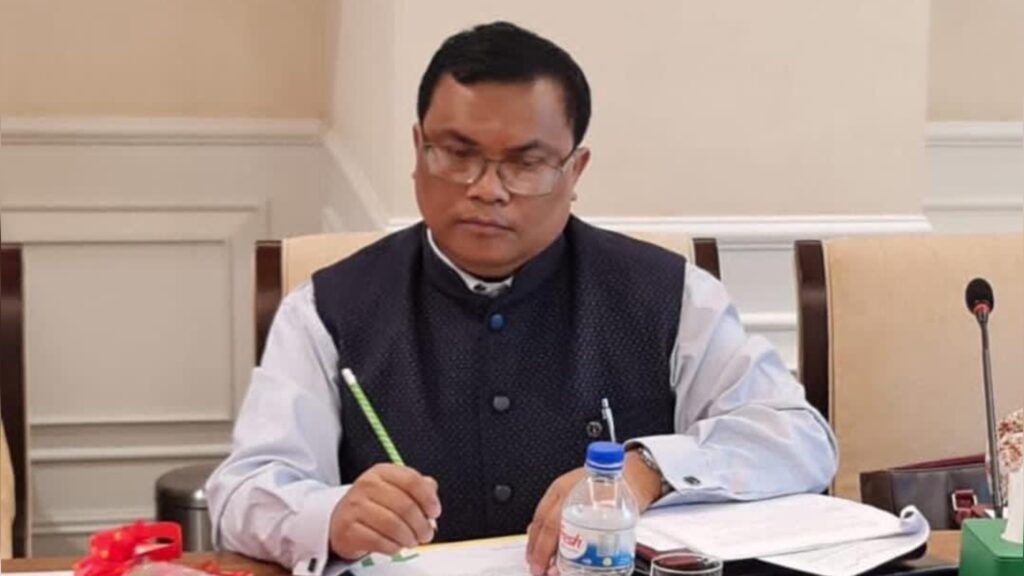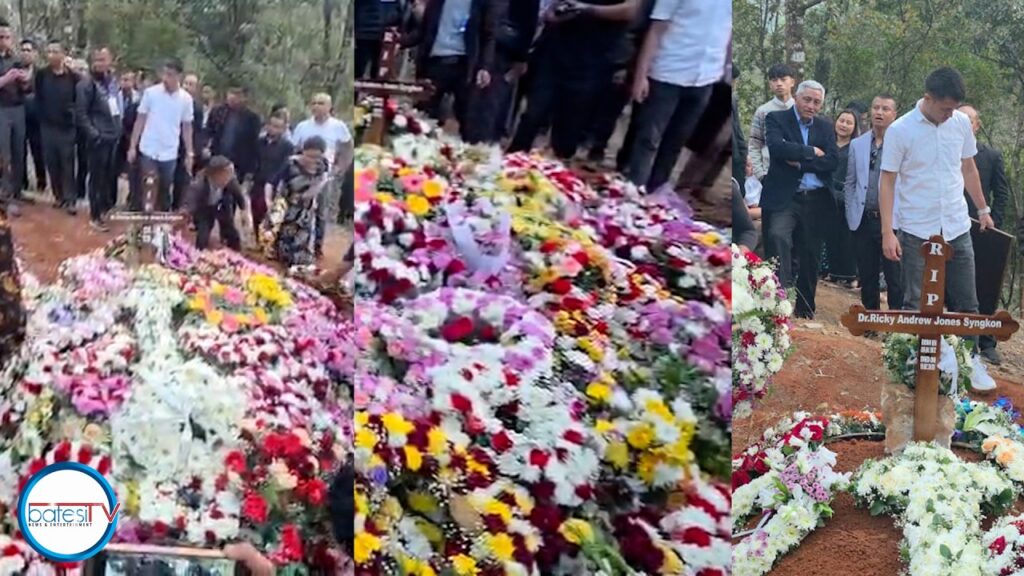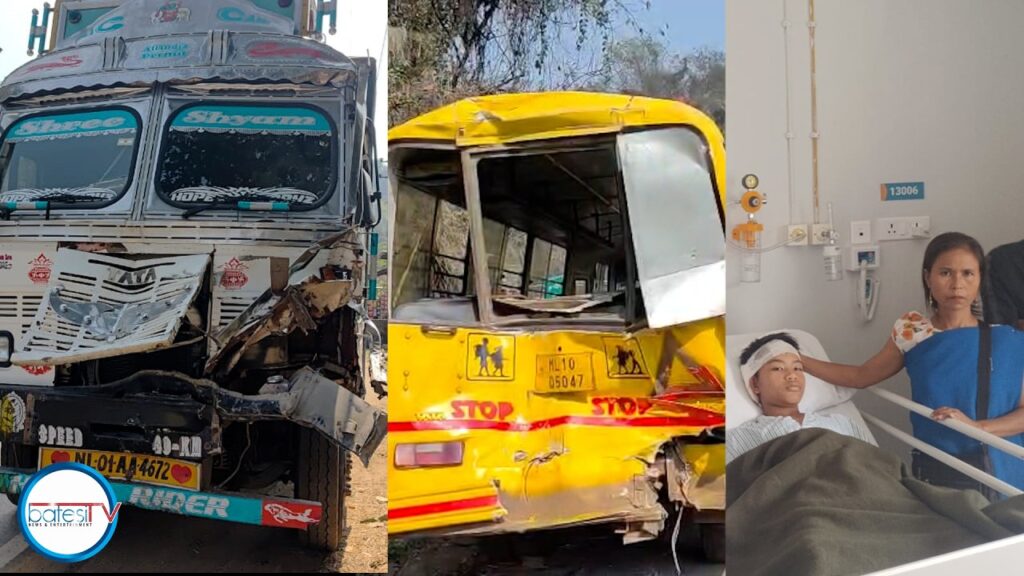Shillong, October 17 : The North East Society for Agroecology Support (NESFAS) was among three global laureates selected from a pool of 360 applicants to receive the prestigious Global Innovation Award at the World Food Forum, held on October 16, 2025, at the headquarters of the Food and Agriculture Organization of the United Nations (FAO) in Rome, Italy.
The recognition, awarded under the category “When farmers lead innovation! 2025 Innovation award on farmer field school for sustainable agrifood systems”, highlights NESFAS’ pioneering Agroecology Learning Circles (ALC) model as an example of community-led innovation in agroecology. ALCs are community-governed platforms that integrate scientific and Indigenous knowledge to promote biodiversity, sustainable food production, and local innovation.
Representing NESFAS at the World Food Forum were Bah Phrang Roy, Founding Chairperson, NESFAS, Pius Ranee, Executive Director, Gratia E. Dkhar, Sr. Associate Programme, Andrea Selva, Assistant for Indigenous Peoples Issues, TIP, and Bedanga Bordoloi, Consultant, NESFAS. They were joined by The Nature Conservancy Centre’s Dr. Sushil Saigal, Executive Director, and Sunpreet Kaur, Programme Lead.
NESFAS’ journey with the ALCs began in the formative years of NESFAS when Bah Phrang Roy, the founding chairperson of NESFAS, stressed the importance of learning about farmers’ movements such as Via Campesina and their Agroecology Schools. In the aftermath of the International Terra Madre of 2015, organised by NESFAS and TIP, which saw the signing of the historic Shillong Declaration, the first ALCs were established with the support of Dr Kevin Gallagher, Farmer Field School (FFS) Pioneer and Dr Francisco Rosado May, Mexico, drawing inspiration from the FFS and La Via Campesina’s Agroecology School models.
Speaking on the significance of the recognition and the vision that began over a decade ago, Bah Phrang Roy remarked, “This honour belongs to the 600 communities who have journeyed with NESFAS. When we brought 169 Indigenous Peoples’ groups from 63 countries together at the Indigenous Terra Madre in 2015, we dreamed of a shared path forward. Today, it’s heartening to see that dream taking shape through the very communities that inspired it.
“Reflecting on this journey, Pius Ranee shared, “During the International Terra Madre in 2015, we realised the world was at the crossroads, losing not just its biological and cultural diversity, but also the ancestral wisdom that sustains it. Our communities knew then that the way forward was to rebuild confidence in traditional knowledge rooted in ecology, culture, and economy. That’s how the idea of the Agroecology Learning Circle was born, a safe space where farmers could learn, experiment, and innovate together. To see this approach now being recognised globally is one of the most rewarding moments in our shared journey with the communities.”
The ALC model encourages experiential learning, observation, and co-creation at the grassroots level and was developed in response to threats facing Indigenous Peoples’ Food Systems. ALCs serve as lighthouse fields where farmers act as both learners and innovators. Each circle fosters collaboration on soil health, crop diversity, seed preservation, and nutrition, while ensuring the inclusion of women and youth in decision-making.
Nestar Kharmawphlang, Chairperson, NESFAS, expressed, “I am absolutely delighted that we have been honoured with this award. This recognition means the world to us as it proves that our work is not only making an impact in our country but also resonating globally.”
With the support of REC, the World Bank, and MBMA, 100 ALCs have been established across 100 villages, engaging over 2,000 members, 83% of whom are women and youth.
Further, with the support of key partners like The Nature Conservancy and Meghalaya Biodiversity Board, the ALC network has also achieved notable outcomes, supporting the upgradation of 210 People’s Biodiversity Registers, which led to the development of People’s Perspective Landscape Management Plans to guide conservation and natural resource governance at the landscape level. Also, through its local procurement model, school meal programmes in 26 schools have been diversified using locally grown produce and wild edibles, benefitting over 1,500 children. Additionally, 21 ALCs have registered as cooperative societies, supporting circular economies and promoting innovations such as Mother Earth Cafés, community seed banks, and local produce networks.
Dr. Sushil Saigal remarked, “We are pleased that our work with NESFAS and local communities in Meghalaya is receiving global recognition. Community-led initiatives like Agroecology Learning Circles demonstrate how local food systems, livelihoods and nature can thrive together. This recognition has reinforced our commitment to building on a strong institutional foundation to scale impact. Together, we can make a lasting difference.”
During the acceptance speech, Gratia Dkhar shared her pride and honour in receiving the recognition from FAO, “We accept it with immense gratitude on behalf of our Indigenous communities, colleagues, and our partners and well-wishers. This award belongs to the farmers, women, and youth who continue to nurture life, land, and culture.”
“ALCs demonstrate how communities can take charge of their landscapes and food systems, strengthening resilience against climate and economic shocks,” Gratia added.
She also briefly spoke about NESFAS’ Vision 2030, which aims to scale the ALC model to restore 1,000 biodiverse landscapes, nourish 100,000 children through local food initiatives, create green livelihoods for 100,000 Indigenous Peoples, and empower 50,000 youth as agroecology and climate advocates.








